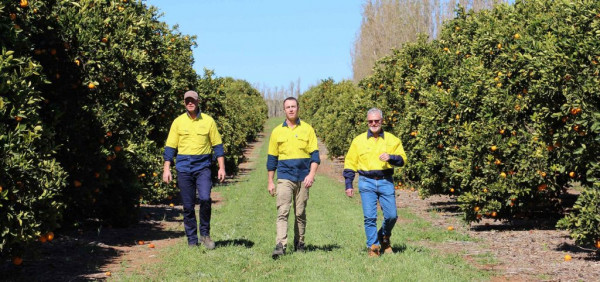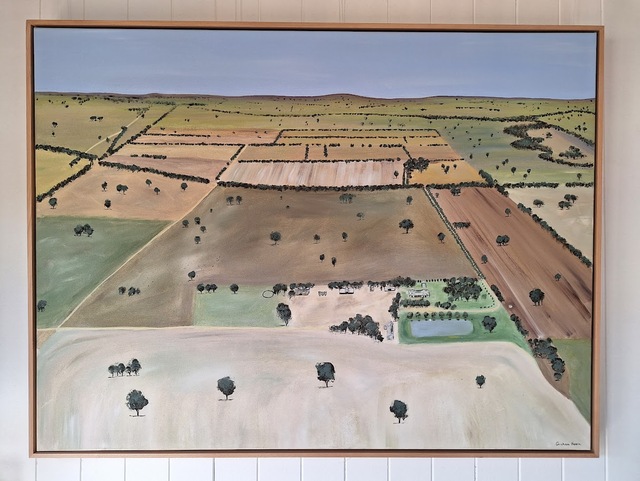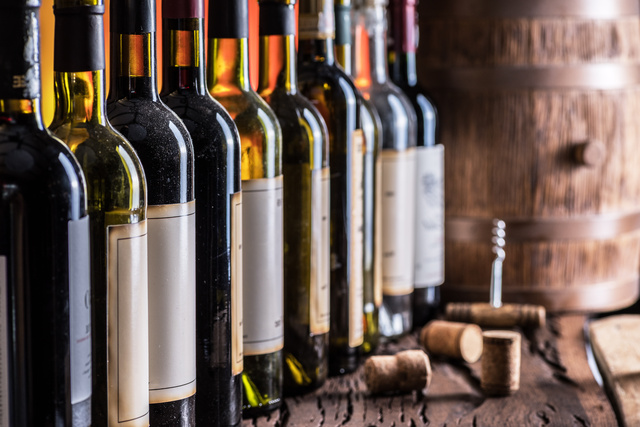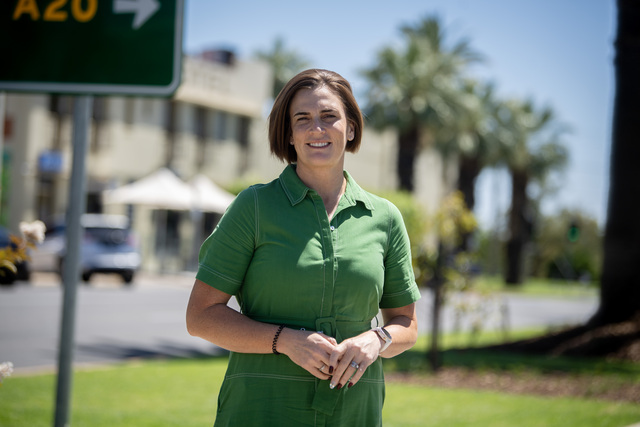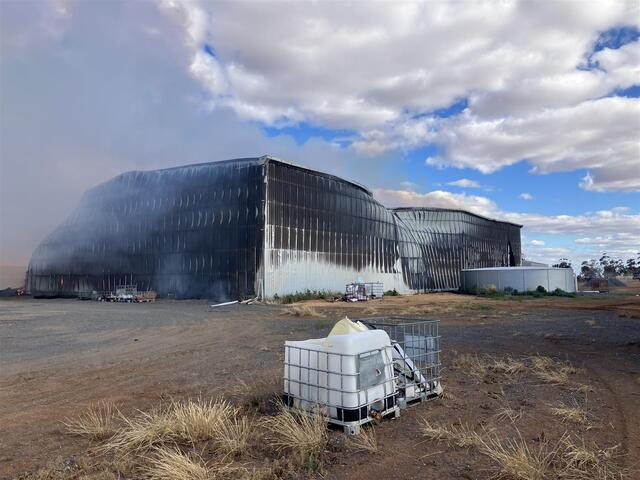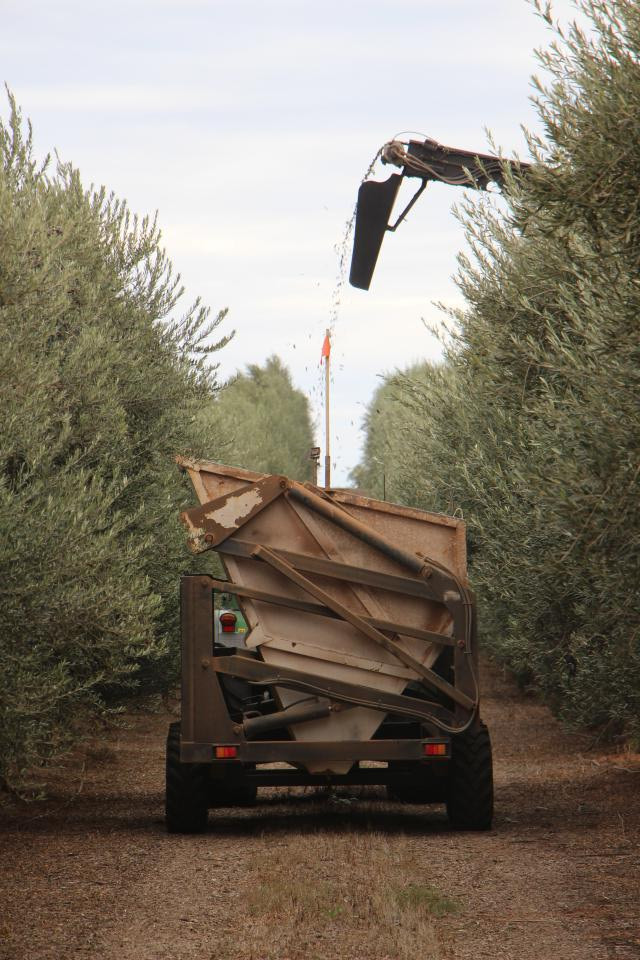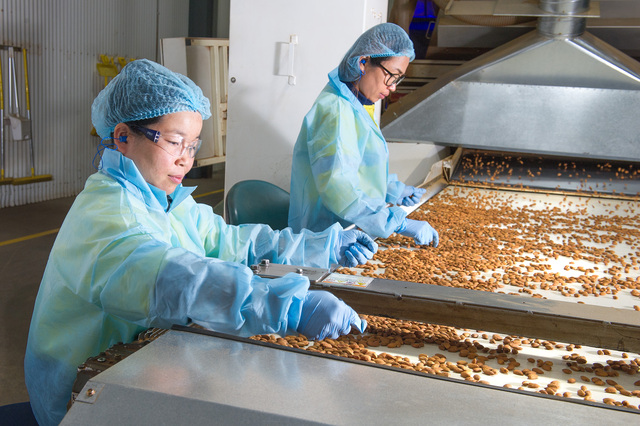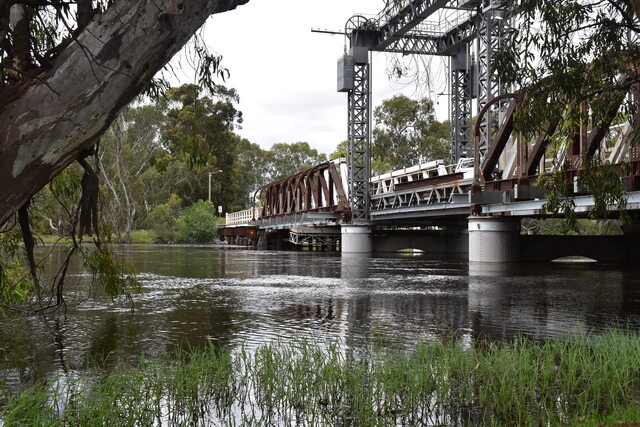Three generations on, and Brenton Chislett never thought he would be responsible for a ‘first’ on the family’s sprawling horticulture enterprise.
But here he was last week, flat out spreading mice baits to save the future trees of his orchard from the ringbarking rodents attacking his four-week-old citrus saplings.
Hardly the pioneering breakthrough he might have dreamt of, but an absolute – and seriously urgent – necessity.
Chislett Farms, Brenton reckons, has never had to bait for mice. Ever.
But after the floods, and the protracted rain, numbers in his neighbourhood have grown exponentially as they spread out looking for food.
“If it’s not the mice, it’s always something, cockies, ants, weevils and, most recently, post-flood, just about every insect known to science,” Brenton says.
Not to mention the ubiquitous fruit fly, monitored year round and treated as needed across the operation.
However, this is no overnight success story, like so many others in the region, Chislett Farms was built on sweat, blood and tears – and the genuinely entrepreneurial eye of founder, grandfather Norm Chislett
Brenton says Norm arrived in Boundary Bend, a short distance from Kenley, in the 1940s where, with two of his brothers, he was involved in setting up a redgum saw mill.
“Like most people in those days, there was no ducking down to the corner store for supplies, so at the same time they started to grow vegetables and began planting citrus trees,” he explains.
“And to make it just that bit harder, these were times of severe drought, and war-related shortages of materials and equipment.
“Irrigation water was pumped from the Murray River by a large, wood-guzzling steam engine, and bare-rooted nursery trees arrived from Sydney by train.
“Those first trees were hand watered from a water cart for the first couple of years, until manual portable sprinkler lines were introduced.
“Tree spraying was manual, using hand pieces connected to hoses.”
And if pickers today think harvest can be hard going, they need to think again.
Brenton says in the good old days, the fruit was plucked from the tree and transferred straight into the classic wooden fruit box, manually loaded onto trailers and hauled to the packing shed, where it was repacked into more handmade wooden boxes, with each one then hefted onto trucks for market.
None of the technology, machinery and fancy bulk fruit bins and picking bags for these bronzed Aussies – that was still years down a very hard road.
“No question the introduction of the tractor mounted forklift and half tonne bulk bins revolutionised fruit handling in the early 1960s,” Brenton says.
“And Norm was going to be ready for it because after he sold out of the sawmill, he bought 16ha at the confluence of the Murray and Wakool rivers at Kenley in 1959,” he says.
Now three generations of Chisletts – and the fourth is coming – have seen this modest foray into farming expand into a multi-property aggregation that currently totals 600ha, and which will be 800ha by the end of next year.
With the business now producing citrus, avocados and pistachios as well as running a large scale wholesale container nursery supplying citrus, avocado and pistachio trees to the wider industry.
The family has a remarkable library of images recording the Chislett story – some from a 21st century perspective sending a shiver down the spine, such as one of George and Doug Chislett applying the insecticide spray Malathion to kill red scale on their citrus trees at Boundary Bend in the early 1960s.
A chemical now heavily controlled and restricted because of its potential risks, but there were the boys – no masks, in shorts and T-shirts, spraying left, right and centre.
There are also shots of the early irrigation systems, the old sawmill and the pickers packing those wooden boxes in the orchards.
Then there is the saga of the Paddlesteamer Hero and punt, owned by Chislett Bros and skippered by Norm – in one of them he was even rescuing stranded cattle near Boundary Bend at the height of the 1956 flood.
The Hero and the barge Canally would both sink in 1958 but would be re-floated 40 years later, with the PS Hero then shipped back upstream to be rebuilt and re-homed at the Port of Echuca.
Brenton says Chislett Farms began with citrus, with the avocados added about 30 years ago and the pistachios planted eight years ago.
There was the early nursery, but today’s full-blown nursery division – a wholesale container operation – specialising in growing citrus, pistachio, avocado and poplar windbreak trees was officially opened in 1997.
He says their NIASA accreditation mandates the use of quarantine and hygiene protocols to exclude diseases and viruses from nursery trees, ensuring rapid orchard establishment.
“All our propagating material originates from virus indexed sources, and all trees are grown in 100 per cent coir (coconut fibre) because of its excellent water holding capacity and freedom from disease,” Brenton adds.
“We are accredited to send trees to all states except Tasmania, and the latest nursery technology has been implemented to provide the highest quality product in the shortest lead time.
“For example, our citrus and pistachio rootstock seedlings are mechanically sown into Ellepots, which eliminate root benching or ‘j-roots’, and the paper surrounding the root-ball is biodegradable.
“This system allows for easy rootstock grading and better uniformity and with greenhouse temperatures kept optimal using evaporative cooling in the warmer months and by a biomass heating system when the weather’s cooler. It results in faster growth, shorter lead times and a more advanced product at the point of supply.”
Back in the old days, Norm Chislett would have been happy to get some of his product to the nearest town (although the family still transport to packings sheds in Nyah).
In 2023 export rules, and that’s where most of the Chislett Farms production will end up, with strong Asian markets from China and all points south.
All of which brings added layers of production complexity Brenton says.
“Our production into places such as China requires different protocols, cultural awareness, pest management issues and so on, it all has to be managed correctly, documented and traceable,” he adds.
Making harvest the big challenge, and the days of assorted family members picking their way through the paddocks is a memory long consigned to the history books.
These days, between the nursery and the farms, there are 80 employees on the books, with another 60 needed from when the pistachios which are just starting to come into full production are ready to go. The normal start is the end of March but that has been delayed at least two to three weeks this year because of the wet , cool conditions.
The citrus runs from April to September and the avocados, run from late August/early September into October.
With the acute shortage of farm workers, Brenton says they have been able to sidestep most of the bigger problems via their access to an enthusiastic and highly-capable team of Pacific Islanders – many of whom are repeat customers, which makes life easy for everyone.
As does the relationship with Swan Hill Chemicals, which has been supplying Chislett Farms with fertiliser, chemicals, equipment and advice since at least 1980, when dad Greg moved back to the farm.
Brenton says for a number of years, the business has been working with Mat Earle, “who goes above and beyond to make sure our needs are met”.
Greg says Mat is almost as much of a regular at the farm as its full-time employees.
“He visits regularly to look at any issues and to check results from trials,” Brenton added.
“We use bulk-delivered liquid fertiliser for the orchard tailored to each crop, pumped straight from the truck into on farm storage tanks,” he says.
“Along with the usual herbicides, fungicides, insecticides and foliar nutrient products for the orchard and nursery.
“I enjoy working with Mat because he has the same mindset as me – whatever it takes.
“Even when given little notice, he manages to supply the products and service on time.”
Chislett Farms is also home to the M7 navel (PBR 2005/185).
This high quality, very early maturing fruit was selected by Greg, when he noticed a limb mutation on a Spanish Navelina tree on Chislett Farms at Kenley.
At the time he observed the colour of the fruit on the limb was more advanced than on the remainder of the tree, and the fruit tasted much sweeter.
“Many years of consistent data has proved the variety matures some three weeks earlier than Navelina, the shape is round and the high strength of the rind has ensured that since its discovery, almost no albedo breakdown has been noticed,” Brenton says.
“The variety has proved to be not only much earlier, but superior to other early navels due to its excellent colour, shape, eating quality and robust skin. M7 is now grown in most citrus growing countries.”
Former NSW Department of Primary Industry research horticulturist Graeme Sanderson says the variety is one of the best naturally occurring mutations he had seen in 20 years of citrus breeding.
“What stood out in the three years of data is the high sugar content, sweet taste and the fruit is round,” he says.
“The variety has the ability to be harvested over an extended period (up to three months) and eats better at any stage due to the brix and acid levels being higher, which not only increases the flavour of the fruit but also the shelf life.”
While Chislett Farms may have grown organically from its early days, the latest acquisition to the aggregation has been purpose built from the ground up.
Literally.
“Over the years as the business has grown we have had a mix of adapt and adopt to make all the parts fit together,” Brenton says. “But the new block, at Goodnight, has been carefully set up, with its row widths, plant density, automated vehicles, everything on the same heading with GPS alignment.”
Purchased in 2018, Goodnight was a greenfield site totalling 1160ha, of which 450ha was suitable for horticultural development, which started in 2020.
“It’s an investment we have considered worthwhile as we are confident the market is still there,” he says.
“Demand is strong for our citrus, although avocados can be a bit of a moving target depending on the national crop.
“With the pistachios only starting to produce decent numbers in the past couple of years it’s still a little bit of wait and see, although nuts, which are a global market, can be better stored and sold when the market is up if necessary.”
Brenton reckons at 800ha, Chislett Farms might be as big as it’s going to get.
It will be interesting to see what generation four says about that in a few years’ time.

